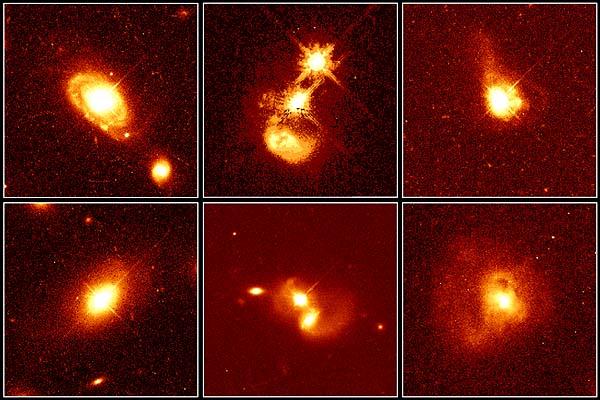Explanation: QUASARs (QUASi-stellAR objects) lie near the edge of the observable Universe. Discovered in 1963, astronomers were astounded that such objects could be visible across billions of light-years, as this implies they must emit prodigious amounts of energy. Where does the energy come from? Many believe the quasar's central engine is a giant black hole fueled by tremendous amounts of infalling gas, dust, and stars. This gallery of quasar portraits from the Hubble Space Telescope offers a look at their local neighborhoods: the quasars themselves appear as the bright star-like objects with diffraction spikes. The images in the center and right hand columns reveal quasars associated with disrupted colliding and merging galaxies which should provide plenty of debris to feed a hungry black hole.
1999 2000 2001 2002 2003 2004 2005 2006 2007 2008 2009 2010 2011 2012 2013 2014 2015 2016 2017 2018 2019 2020 2021 2022 2023 2024 2025 |
Yanvar' Fevral' Mart Aprel' Mai Iyun' Iyul' Avgust Sentyabr' Oktyabr' Noyabr' Dekabr' |
NASA Web Site Statements, Warnings, and Disclaimers
NASA Official: Jay Norris. Specific rights apply.
A service of: LHEA at NASA / GSFC
& Michigan Tech. U.
|
Publikacii s klyuchevymi slovami:
black hole - quasar - kvazary - chernye dyry - vzaimodeistvuyushie galaktiki - sliyanie galaktik
Publikacii so slovami: black hole - quasar - kvazary - chernye dyry - vzaimodeistvuyushie galaktiki - sliyanie galaktik | |
Sm. takzhe:
Vse publikacii na tu zhe temu >> | |
